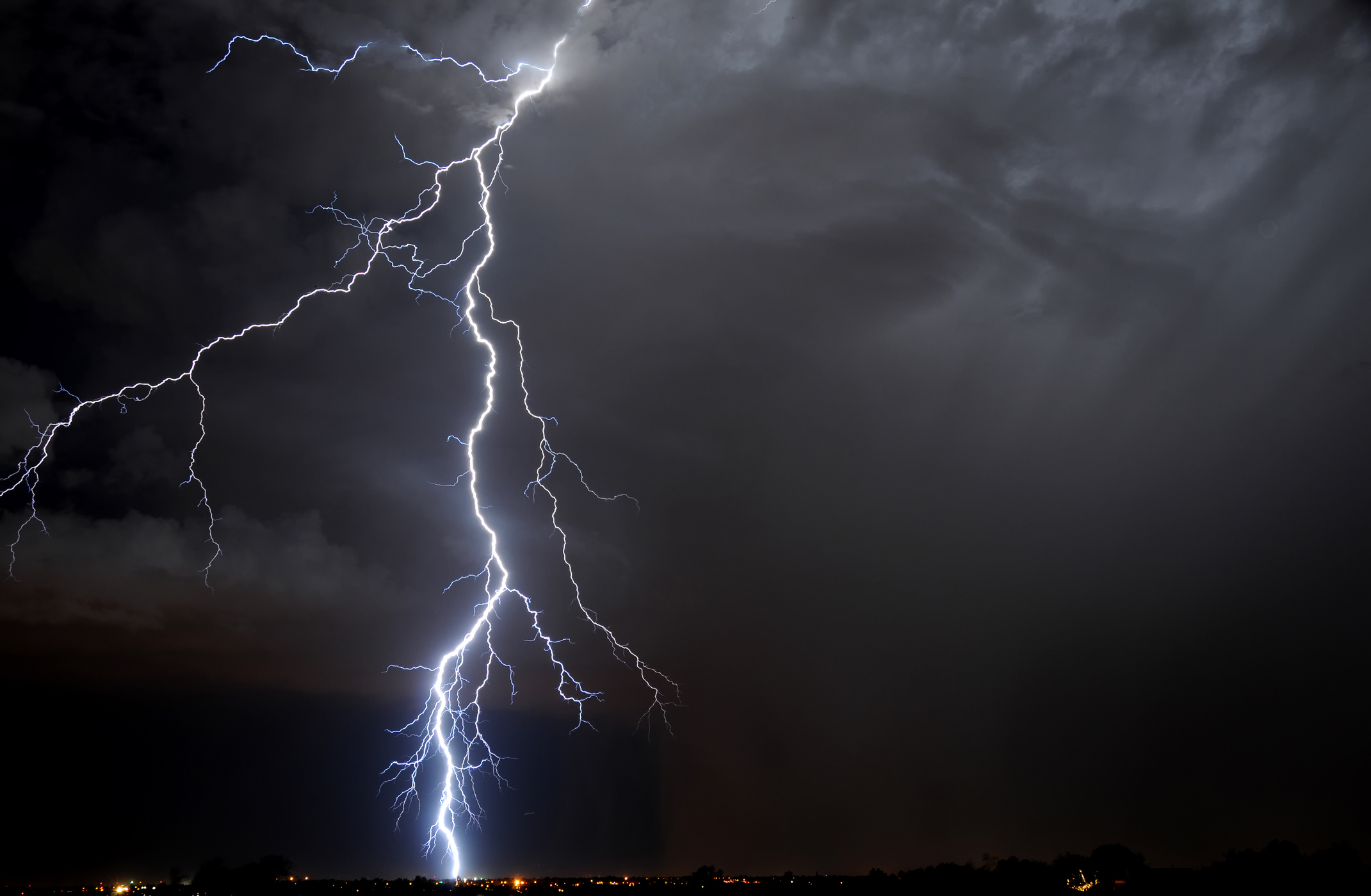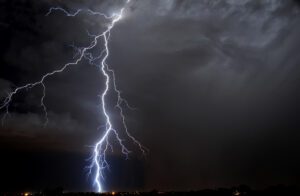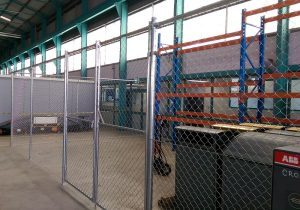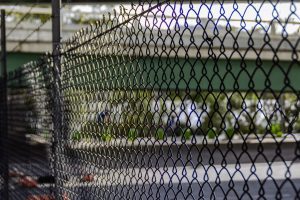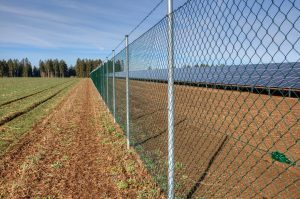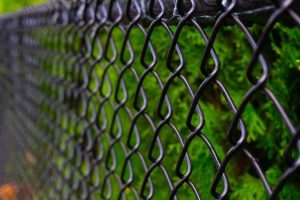Living in Southeast Queensland and Northern NSW means preparing for unpredictable weather. If you want to protect your fence from storm damage, you’ll need to reinforce weak points and take preventative measures before extreme weather hits. High winds, heavy rainfall, and even hail can wreak havoc on properties, particularly fencing. Whether you have a chain wire fence, timber, Colorbond, or aluminium fencing, preparing it for severe weather is important to prevent costly damage and ensure long-term durability.
In this guide, we’ll go through the steps to help you prepare your fence for severe weather in Brisbane and Gold Coast. Always ensure you have appropriate PPE on when working on a fence.
1. Inspect Your Fence for Weaknesses
Before storm season starts or before the arrival of a severe weather event, thoroughly inspect your fence for signs of wear and tear. Look for:
- Loose or rusted fasteners
- Weak or leaning posts
- Loose chain wire mesh or sagging sections
- Cracks in timber fencing
- Corrosion or rust on metal fencing
If you spot any of these issues, address them immediately. Even a minor weakness can become a major failure point during a storm.
2. Reinforce Fence Posts
The strength of your fence largely depends on its posts. Strong winds can easily uproot or topple posts that aren’t properly secured.
- For chain wire fences: Ensure posts are set in concrete footings at least 600mm deep to resist uplift forces.
- For timber fences: Check that posts are not rotting and replace any that are unstable.
- For Colorbond or aluminium fences: Secure posts with additional bracing if they show signs of movement.
If you’re in an area prone to extreme winds, consider installing deeper footings or adding stabilisers to strengthen the fence line.
3. Tighten Chain Wire Mesh and Fasteners
Chain wire fencing is designed to be flexible, which helps it withstand high winds better than rigid fences. However, loose mesh or fittings can lead to significant damage.
- Check and tighten all wire fasteners and clamps.
- Re-tension any sagging mesh to maintain a firm and even surface.
- Inspect top and bottom rails for any signs of wear and ensure they are securely attached.
A properly tensioned chain wire fence is far more resilient in high winds.
4. Remove shade cloth from chain wire fencing if present
Shade cloth is a fantastic way to create a privacy screen for a chain link fence, especially if your property is in a busy suburb, however shade cloth can both cause and be damaged by extreme wind.
- Locate the method of attachment to the fence, this will often be clipping ties or zip ties.
- Using wire cutters or scissors, remove the ties and roll the shade cloth as you remove it from the fence.
- For larger fence lines, consider contacting your local fencing contractor as they will quite often have fast methods for removal.
Once the storm or weather event has passed, simply reaffix your shade cloth back to the fence line in reverse to the way you took it down.
5. Trim Overhanging Trees and Branches
One of the biggest threats to fencing during storms is falling trees and branches. Heavy winds can snap branches, sending them crashing into fences and causing serious damage.
- Trim overhanging branches near your fence line.
- Remove dead or weak trees that could fall in severe weather.
Larger trees can be extremely difficult to cut safely, please contact a professional arborist if you are unsure about any trees near your fence.
6. Clear Debris Around the Fence
Leaves, rubbish, and loose objects near your fence can become projectiles in a storm, leading to unnecessary damage.
- Remove any garden furniture, toys, or construction materials near the fence line.
- Keep nearby gutters and drains clear to prevent water pooling that can weaken fence posts.
- Secure or remove any temporary fencing or gates.
For larger clean up projects you can contact your local garden care expert to arrange a time for them to tidy up your property.
7. Check for Drainage Issues
Heavy rain can soften the ground, making fence posts unstable. Ensuring proper drainage around your fence can prevent waterlogging and soil erosion.
- For chain wire fences: Check that water drains away from posts rather than pooling around them.
- For timber fences: Ensure adequate spacing at the base to prevent water absorption and rot.
- For Colorbond fences: Keep weep holes clear to allow proper water runoff.
If necessary, consider adding gravel or drainage trenches to redirect excess water away from the fence line.
8. Secure Gates and Latches
During a storm, strong winds can force gates open or even rip them off their hinges.
- Install heavy-duty latches that can withstand strong winds.
- Use drop bolts or padlocks to keep gates securely closed.
- For chain wire fencing gates, check the tension and reinforce hinges if needed.
A well-secured gate can prevent unnecessary strain on the entire fence structure.
9. Consider Wind-Resistant Upgrades
If your area is prone to frequent storms, consider reinforcing or upgrading your fence to improve durability.
- Chain wire fencing with additional bracing: Installing extra support posts and rails can help withstand high winds.
- Cyclone-rated fencing: Designed specifically for storm-prone areas, these fences offer superior strength and flexibility.
- Wind gaps in solid fences: Adding small gaps between panels can help reduce wind resistance and pressure on the fence.
10. Regular Maintenance and Post-Storm Checks
Routine maintenance is key to ensuring your fence remains strong season after season.
- Inspect your fence after every major storm for signs of damage.
- Repair any minor issues immediately to prevent them from becoming bigger problems.
- Apply rust protection to chain wire fencing to extend its lifespan in wet conditions.
Storm-proofing your fence is a crucial step in protecting your property, especially in areas like Brisbane, Gold Coast and Northern New South Wales, where severe weather can be unpredictable. Whether you have chain wire fencing or another type of fence, regular inspections, reinforcement, and smart landscaping choices can significantly reduce the risk of damage.
If you’re unsure about the stability of your fence, or if you need chain wire fencing repairs or upgrades, contact a professional fencing contractor for expert advice. Taking the time to prepare now will save you from costly repairs later—and ensure your fence stands strong through whatever Mother Nature throws at it. To stay ontop of the latest weather forecasts, regularly check local weather website such as the Bureau of Meteorology
Stay safe and storm-ready!
